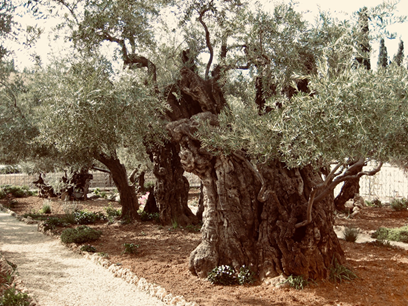Ep.928: What Should We Be Praying For?
Guidelines and principles for having your prayers heard
If you do not have a password, please subscribe to our FREE Premium Content for the Full Edition version of CQ Rewind. The welcome message will contain your password, and a reminder will be sent each week when the CQ Rewind is available online for you to read, print, or download.
CHAPTERS
Theme Scripture: Matthew 6:6
Lots and lots of people pray, and we pray for all kinds of things from wanting more material things in our lives to wanting to be healed from disease or injury, to wanting bad experiences to end. While we also pray for God’s will to be done, it seems as though the focus of most of our prayers is about – well, it is all about "me" – what I feel, what I want and what I prefer. Think about it...praying is supposed to be spiritual access to the God of all things and in that access all we can focus on is...me!? So, how is prayer supposed to work? Are there guidelines or rules for HOW we should pray? Are there dos and don’ts for WHAT we should be praying for? Is prayer an open and easily accessible tool for anyone who wants to talk to God or is it more of a privilege for those who are seeking God’s will?
Because prayer is a worldwide, multi-religion phenomenon, our conversation needs to narrow to the Judeo-Christian principles of prayer. In so doing, that focuses our search for the basics of prayer towards the book in which we have the most confidence – the Bible. What a gold mine! We found that prayer as a tool has three basic components: Privilege, Process and Persistence. If we understand these three pieces, we can begin to understand how to make prayer a vital and effective part of our daily lives.
Let’s concentrate for a moment on privilege. If you really believe that the God of heaven is the Creator of all things and that He is all-seeing and has a plan for the world and for you then STOP! THINK! When you pray, you are talking to Him and you are trying to listen to what He – the highest and most powerful being in and beyond our universe - is telling you. If this does not give you a sense of undeserved privilege then, well, let’s just say that you might need to reflect and think it through again.
Many prayers in the Bible show us this deep and reverential attitude towards approaching God. David in Psalm 63 is a great example. He wrote this prayer while he was a fugitive, hiding in caves in Judah from King Saul who had gone mad and sought to kill him. As David began to pray under this life threatening strain, he gave us verse after verse of praising God and of the boundlessness of God’s mercy and security of God’s love. It is only after thoughtfully lauding the greatness of God that he asked for help in his life-threatening circumstances.
Perhaps we should follow David’s lead in our own prayers and put first things first. Let’s try to intentionally appreciate the magnitude of our God before we pour out our woes, fears and failures to him. When we do this we will more easily begin to see our trials through the godly eyes of faith rather than the defeated eyes of struggle. Making this adjustment will then help us to see His plans and answers more plainly as well.
Check out our July 31, 2016 program, “What Should We be Praying For?” There is so much more to learn about regarding the value of prayer, and it is all right there for the taking!



























